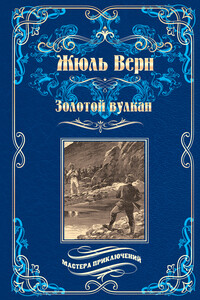Двадцать тысяч лье под водой | страница 7
подробности, я хочу яснее показать значение этой компании морского пароходства, которая своей четкостью в работе приобрела мировую известность. Ни одно трансокеанское пароходное предприятие не было руководимо с таким уменьем; ни одно дело не увенчалось таким успехом. В течение двадцати шести лет суда пароходства Кюнарда две тысячи раз пересекли Атлантический океан, ни разу не отменив рейса, ни разу не опоздав против расписания, ни разу не потеряв ни одного письма, ни одного человека, ни одного судна за время своего плавания! И по сию пору, несмотря на сильную конкуренцию со стороны Франции, пассажиры предпочитают пароходную компанию Кюнарда всем прочим компаниям, как это видно из официальных документов за последние годы. Приняв во внимание все эти обстоятельства, легко понять, какой поднялся шум вокруг аварии, постигшей один из лучших пароходов компании Кюнарда.
| The 13 th of April, 1867, the sea being beautiful, the breeze favourable, the Scotia, of the Cunard Company's line, found herself in 15° 12' long. and 45° 37' lat. She was going at the speed of thirteen knots and a half. | Тринадцатого апреля 1867 года "Шотландия" находилась под 15o12' долготы и 45o37' широты. Море было спокойное, дул легкий ветерок. Тысячесильная машина сообщала пароходу скорость в тринадцать и сорок три сотых узла. Колеса парохода равномерно рассекали морские волны. Осадка судна равнялась шести метрам семидесяти сантиметрам, а его водоизмещение -шести тысячам шестистам двадцати четырем кубическим метрам. |
| At seventeen minutes past four in the afternoon, whilst the passengers were assembled at lunch in the great saloon, a slight shock was felt on the hull of the Scotia, on her quarter, a little aft of the port-paddle. | В четыре часа семнадцать минут пополудни, в то время как пассажиры завтракали в кают-компании, корпус парохода вздрогнул от легкого удара в кормовую часть, несколько позади колеса левого борта. |
| The Scotia had not struck, but she had been struck, and seemingly by something rather sharp and penetrating than blunt. The shock had been so slight that no one had been alarmed, had it not been for the shouts of the carpenter's watch, who rushed on to the bridge, exclaiming, "We are sinking! we are sinking!" At first the passengers were much frightened, but Captain Anderson hastened to reassure them. The danger could not be imminent. The Scotia, divided into seven compartments by strong partitions, could brave with impunity any leak. Captain Anderson went down immediately into the hold. He found that the sea was pouring into the fifth compartment; and the rapidity of the influx proved that the force of the water was considerable. Fortunately this compartment did not hold the boilers, or the fires would have been immediately extinguished. Captain Anderson ordered the engines to be stopped at once, and one of the men went down to ascertain the extent of the injury. Some minutes afterwards they discovered the existence of a large hole, two yards in diameter, in the ship's bottom. Such a leak could not be stopped; and the Scotia, her paddles half submerged, was obliged to continue her course. She was then three hundred miles from Cape Clear, and, after three days' delay, which caused great uneasiness in Liverpool, she entered the basin of the company. |







